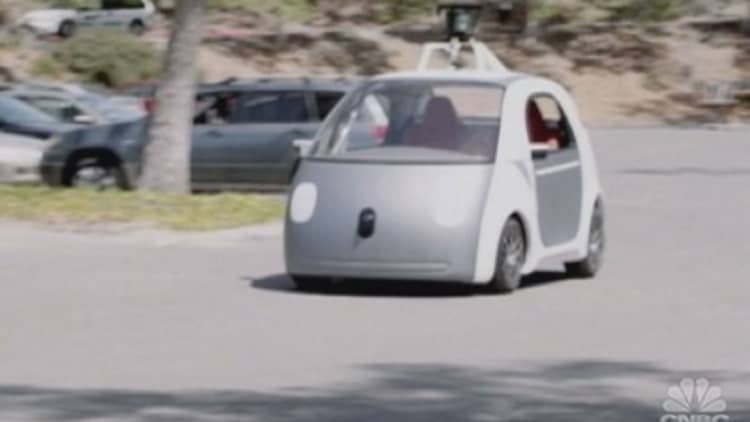Betting on demand from motorists in the world's crowded megacities, Nissan CEO Carlos Ghosn has laid out an aggressive timetable for bringing autonomous vehicles to market. But before the company's first self-driving cars go on sale in 2020, Nissan will launch new technologies that will supplement drivers behind the wheel.
The move is part of the automaker's push to take the lead in the development of autonomous technologies—an area that's being eyed by other car companies and tech giant Google.
A recent report by Navigant Research forecast annual sales of autonomous vehicles could reach nearly 95 million by 2035.
"By the end of 2016, Nissan will make available the next two technologies under its autonomous drive strategy," Ghosn said. "We are bringing to market a traffic-jam pilot, a technology enabling cars to drive autonomously—and safely—on congested highways. In the same time frame, we will make fully automated parking systems available across a wide range of vehicles."
More from The Detroit Bureau:
Automakers getting charged up about turbos
Ultra-expensive autos running at a record pace
VW ready to build modern version of Beetle Dune Buggy
These capabilities will be followed in 2018 by the introduction of what Ghosn described as "multiple-lane controls," which will allow cars to autonomously negotiate hazards and change lanes. Before the end of the decade, Ghosn said, the company will introduce vehicles that can negotiate city crossroads without driver intervention.
Nissan is already making strides in autonomous technologies, with prototype Leaf electric vehicles that are outfitted with an array of cameras, radar, lasers and sonar sensors. Nissan is also equipping some of its products with basic technologies that will eventually be part of a fully autonomous car.

One example is the steer-by-wire system on the new Infiniti Q50, which eliminates the traditional, mechanical link between the steering wheel and the tires. (There is a backup system in case the sedan loses power, though the vehicle last year was subject to a recall linked to the system.)
While there are plenty of skeptics who question the potential for autonomous vehicles, Navigant's study suggests the technology will become the dominant form of automotive transportation down the road.
Read MoreSelf-driving cars are coming, but how?
"Combinations of advanced driver assistance features that can enable semiautonomous driving are now being brought to market for the first time," said David Alexander, senior research analyst with Navigant Research. "The cost reductions brought about by increasing volumes and technological advances make the installation of the multiple sensors necessary for such capability feasible."
The research firm said the key obstacles to widespread sales of autonomous vehicles are not technological. Instead, they relate to "liability, regulation and legislation."
—By CNBC Contributor Paul A. Eisenstein. Follow him on Twitter @DetroitBureau or at thedetroitbureau.com.

